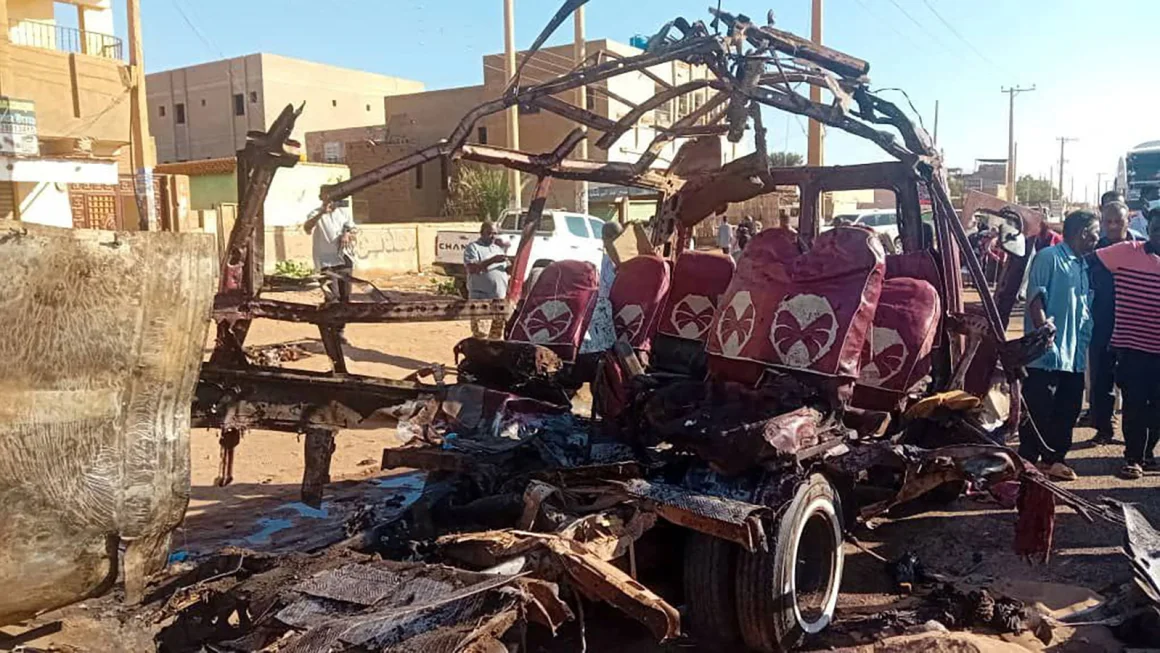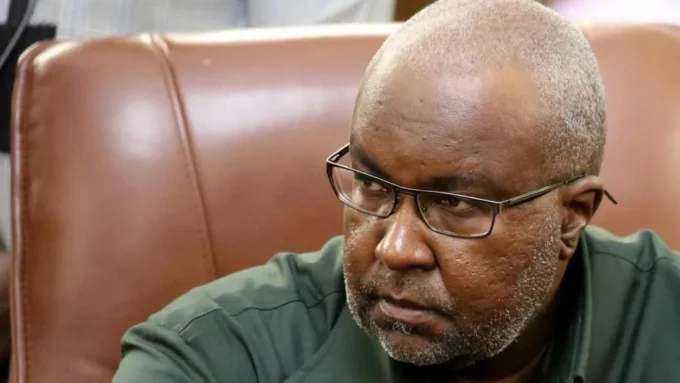The ongoing conflict in Sudan turned deadlier this week as at least 127 people, most of them civilians, were killed in a surge of airstrikes, artillery shelling, and barrel bomb attacks across multiple regions. The grim escalation, reported by rights groups and activists, underscores the growing toll of the 20-month war between Sudan’s army and the paramilitary Rapid Support Forces (RSF).
The latest violence highlights the increasingly brutal nature of the conflict as international ceasefire efforts have stalled, and global attention remains diverted by other crises. In Sudan, civilian populations continue to bear the brunt of a war that has displaced millions, destroyed livelihoods, and plunged the country deeper into chaos.
On Monday, the town of Kabkabiya in North Darfur became the scene of one of the deadliest attacks in recent months. According to the Al-Fashir Resistance Committee, more than eight barrel bombs struck the town’s market, killing over 100 civilians and leaving hundreds more wounded. The human rights group Emergency Lawyers confirmed the devastating toll and shared images of mass graves, highlighting the extent of the carnage.
Witnesses described harrowing scenes of destruction. Verified videos showed bodies strewn across the market’s charred remains, with fires raging through shops and fruit stalls. In the footage, anguished cries could be heard as survivors carried wounded civilians from the wreckage. A man in one clip laments, “People are dying wholesale,” a chilling reminder of the indiscriminate violence faced by ordinary Sudanese.
The Sudanese army denied responsibility for the Kabkabiya bombings but justified its airstrikes as targeting RSF military positions. The RSF, notorious for its raids on villages and alleged human rights abuses, did not immediately respond to accusations. However, eyewitnesses reported seeing armed men on motorcycles wearing headwraps typically associated with RSF soldiers.
An activist from Kabkabiya noted that, while a handful of soldiers were typically present in the market, the overwhelming majority of those killed were civilians. He said that at least 87 bodies had been identified, but others were too mutilated or charred to be recognized.
The town of Kabkabiya lies in North Darfur, a region that has faced repeated army airstrikes as part of ongoing battles for control of Al-Fashir, the state capital and the army’s final stronghold in the region.
The violence continued into Tuesday, as RSF forces unleashed heavy artillery fire on an army-controlled area in Omdurman, part of Sudan’s greater Khartoum state. According to residents and rights groups, at least 20 civilians were killed in the shelling, including 14 passengers riding a bus struck by incoming fire.
The Khartoum state government, which remains under army control, placed the death toll at 65, with dozens more wounded. Casualties were transferred to Al-Naw Hospital for emergency treatment. Social media images, though unverified, showed streets littered with bodies and the wreckage of destroyed vehicles—haunting visuals of a city under siege.
The United Nations has warned of a worsening humanitarian catastrophe, with over 30 million people now in urgent need of aid. The conflict has displaced nearly 12 million people, many of whom face dire conditions in overcrowded camps and areas lacking basic infrastructure.
In North Darfur’s Zamzam camp, a famine declaration has added a tragic new dimension to the crisis. Adam Rojal, spokesperson for the Coordinating Committee for Displaced People, reported that shelling on Tuesday killed seven people in the camp, further exacerbating the suffering of displaced families already on the brink of starvation.
The Sudanese war, which began in April 2023, has pitted the national army, led by General Abdel Fattah al-Burhan, against the RSF, commanded by General Mohamed Hamdan Dagalo, also known as Hemedti. The power struggle between the two factions has spiraled into a protracted conflict that has devastated the country and pushed it to the edge of collapse.
International mediation efforts to secure a ceasefire have repeatedly failed, while crises in other parts of the world have overshadowed Sudan’s humanitarian tragedy. As fighting intensifies, civilians remain trapped in the crossfire, with markets, villages, and refugee camps becoming frequent targets of violence.
Rights groups have condemned the warring factions for their blatant disregard for civilian lives. Barrel bombs and artillery strikes on densely populated areas, such as Kabkabiya and Omdurman, underscore the urgent need for accountability and an immediate cessation of hostilities.
The international community faces mounting pressure to refocus attention on Sudan’s crisis. Without decisive intervention, the conflict threatens to consume the country entirely, leaving a trail of untold human suffering in its wake.
For the Sudanese people, the latest attacks are yet another reminder of the unrelenting violence that has defined their lives for the past 20 months. As barrel bombs fall and artillery fires rage, the calls for peace grow louder—but for now, they remain unanswered.














Leave a comment